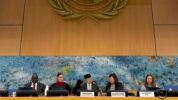Indonesia Faces 32% U.S. Import Tariff: Economists Urge Diplomacy and Reform
Nevertheless, Indonesia may not necessarily become the primary beneficiary of this shift in trade patterns. Falianty pointed out that countries like Japan, South Korea, and the European Union are more likely to absorb the redirected exports. As such, Indonesia needs to be cautious and proactive in positioning itself as a viable alternative market for products displaced from the U.S.
In light of these developments, the Indonesian government must also anticipate potential increases in imports from other countries as exporters seek alternative markets. Strengthening domestic market protections without creating discriminatory barriers will be critical to ensuring fair competition and compliance with international trade laws.
Falianty also highlighted the key issues driving the U.S. decision to impose tariffs, namely allegations of currency manipulation and the use of non-tariff barriers by the Indonesian government. To reduce the tariffs, Indonesia must take steps to simplify non-tariff barriers and provide clear evidence that it is not manipulating its currency. These measures could play a crucial role in restoring Indonesia’s trade standing with the U.S.
The situation calls for a delicate balance of diplomacy, regulatory reform, and strategic industry support to safeguard Indonesia’s economic interests. By focusing on multilateral engagement, improving export competitiveness, and addressing U.S. concerns, Indonesia can strengthen its position in the face of rising trade tensions with the United States.(Uki Ruknuddin)



























Tinggalkan Balasan